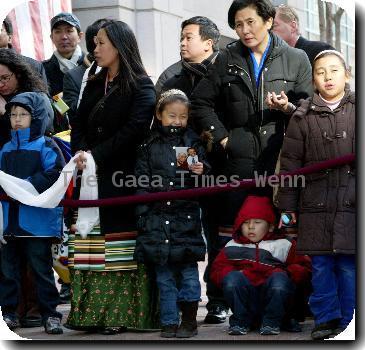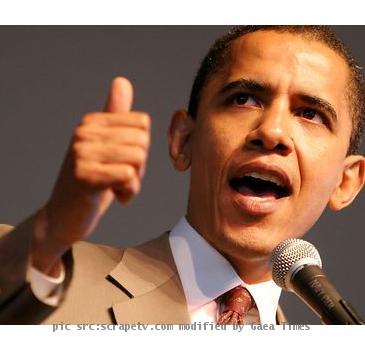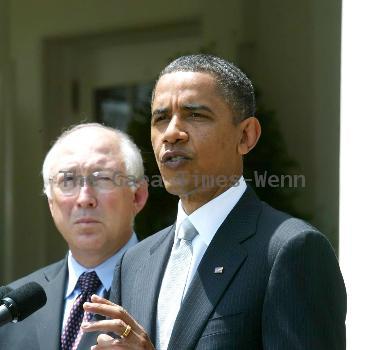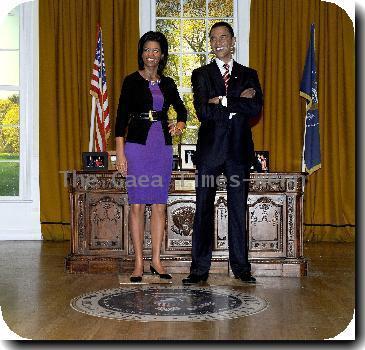Democrats say they’re optimistic money, manpower will help stem losses this fall
By Liz Sidoti, APFriday, August 20, 2010
Dems hope money, manpower stem losses
ST. LOUIS — Under no illusions about their challenges this fall, Democrats are expressing optimism that the party’s financial might and voter turnout operations will help stem widespread losses. The GOP’s governing track record may help, too, they say.
“There’s a lot of doom and gloom about it, but I think we’re going to do a lot better than people think,” Tim Kaine, the Democratic Party chairman, told Democratic National Committee members at a two-day meeting. “We’ve got a long way to go, but I think a number of factors are moving in the right direction for us.”
He pointed to strong July fundraising — an $11.5 million haul leaving Democrats with $10.8 million in the bank — and a proven get-out-the-vote operation built upon the success of the 2008 presidential election that delivered Barack Obama the White House.
“We believe that counts for an awful lot,” Kaine said.
It was a message echoed — at least publicly — by his rank and file, which gathered Thursday in this bellwether state to get a status report of preparations for the 2010 midterm elections and approve changes to the 2012 presidential primary calendar and nominating convention.
Privately, some Democrats fretted that the political environment may be getting even more difficult for the party in power, with dour economic news seeming to pile up with each passing day. On Thursday, the Labor Department reported that the number of people applying for unemployment benefits reached the half-million mark last week for the first time since November.
Democrats are trying to persuade an electorate frustrated by a 9.5 percent unemployment rate and a sluggish recovery to give them more time to prove that their economic fixes are working. Republicans are encouraged that just two years after choosing Obama, voters seem ready for change again.
No one denied the difficult situation Democrats find themselves in as they seek to keep their comfortable majorities in Congress; the party is certain to lose seats in both the House and Senate. The question is just how many.
“This is set to be quite the challenging year for Democratic candidates,” acknowledged Ray Buckley, New Hampshire Democratic Party chairman. “The odds may be stacked against us and they may be a little higher than normal. But I know we can win.”
The key, he and others said, was to make clear that voters should give Democrats more time instead of choosing the alternative: going back to Republican rule that Democrats say caused the near-collapse of the economy.
Said Buckley: “We’re going to make that message clear.”
Vice President Joe Biden was to address the group Friday.
The full committee also was voting on changes to the 2012 presidential primary calendar. It’s likely Obama will run for re-election and be renominated. Even so, the party sought to fix the system in the aftermath of the protracted 2008 primary.
“We think it will be beneficial to a smoother functioning nomination process,” said James Roosevelt Jr. of Massachusetts, a co-chairman of the committee’s rules and bylaws panel.
The DNC is expected to sign off on the panel’s plan that would push back the start of the nominating season and all but mirror the schedule the Republican National Committee approved earlier this month.
Democrats would hold the Iowa caucuses on Feb. 6, 2012, and the New Hampshire primary eight days later, on Feb. 14. Nevada caucuses would be Feb. 18 and the South Carolina primary on Feb. 28. All other states would hold their primaries and caucuses March 6 or later.
States that hold their primaries later in the 2012 calendar year would get anywhere from 5 to 20 percent more delegates to the convention.
The party also was looking to limit the influence of the independent superdelegates in choosing the party’s nominee by reducing their numbers, from 20 percent of the total number of delegates to 15 percent. Superdelegates are the members of Congress, governors and party elders who can back candidates regardless of how their states vote.
Online:
DNC: www.democrats.org
Tags: 2012 United States Presidential Election, Barack Obama, Events, North America, Political Organizations, Political Parties, Primary Elections, St. Louis, United States, United States Presidential Election





